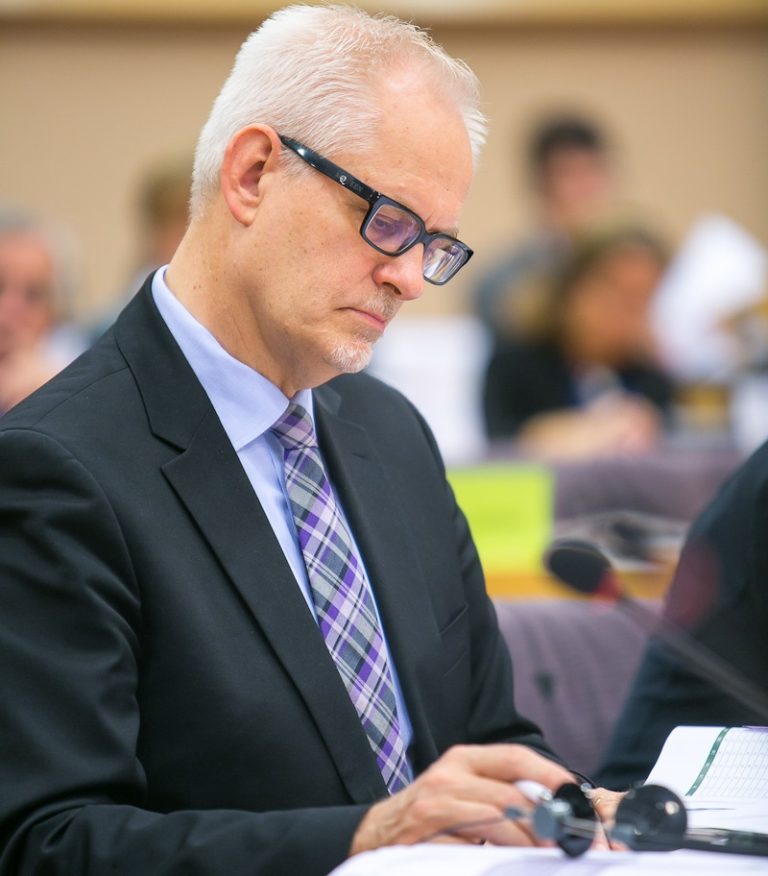EU and the fight against terrorism, EP TODAY
19.1.2016

Extremist fanaticism has established itself firmly on the political agenda for the coming years. The bloody attacks in Paris on 13 November sent a shockwave throughout the world and left Europe in fear of new aggressions.
Despite a decade of deadly attacks from Madrid to Paris, the jihadists’ determination to destroy our way of life seems to surprise us time after time. As much as we value our security and freedom, Europe has not been able to organize itself properly to eliminate the threat of terrorism.
With the decline in international conflicts, terrorism has emerged as the defining challenge of our time. Since it knows no borders, the only way to eradicate it is by international cooperation. The security of the Member States is not only dependent on other Member States, but is also tightly connected to the developments in the EU’s neighbouring areas. What we need to achieve, especially in the nearby countries, is stability.
The Member States have committed to cooperation in the fight against terrorism. But the fight is still foremost a national competence and the Member States often fail to cooperate efficiently enough, making Europe fall behind. As sad as it is, often only new terrorist attacks tend to accelerate the will of the Member States to take action in mutual understanding. To avoid such incidents as the Paris attacks in the future, we need a more proactive EU, instead of a reactive EU.
Once again shocked by the most recent attacks, the EU leaders announced an uncompromising fight against terrorism and called for various countermeasures. The Member States have now shown their strong support for strengthening the EU’s external borders and deepening the cooperation of police and judicial authorities in eliminating the prerequisites of the terrorist organisations, such as their financial resources and their means to attack and communicate. Whether the commitment extends to actual implementation, remains to be seen.
The EU has numerous practical tools to support the Member States in their efforts, as soon as there is agreement on how they are to be used. For example, information-sharing between Member States and their police authorities in Europe could more efficiently be done through Europol. Giving police authorities and intelligence agencies better access to data would allow the EU and the Member States to identify and better intercept the processes of radicalisation and the recruitment of extremist fighters. This would also mean more coordinated efforts to block the terrorists’ financial resources and their internet propaganda channels.
The Commission recently tabled a proposal for a directive on terrorism, which aims to close criminal enforcement gaps in the EU legal framework. The proposed directive would criminalise preparatory acts such as training and traveling abroad for terrorist purposes, as well as aiding, provoking and attempting terrorist acts. Thousands of fighters from Europe are known to have traveled to different locations to be trained and to fight for terrorist organisations. The security threat these people may pose inside the EU when they return is something the EU has to be better prepared for.
After the tragic Paris attacks, the political groups which were persistently against many of the data-related agreements have now also begun to understand that credulous ideologies and principles cannot compromise the security of the European citizens. After more than four years of negotiations, the LIBE Committee finally approved the EU Passenger Name Record system. The PNR will facilitate a more systematic collection of the data of international airline passengers, therefore aiding the investigations of terrorist offences and helping to prevent further attacks.
Despite the recent positive developments, Europe still has a very long path to walk in its fight against terrorism. To secure the success in this fight in the future, the Member States have to rapidly implement the proposed new countermeasures, such as the EU PNR system, to ensure smoother cooperation in the EU. Half measures must be resisted. Our reaction must be swift and thorough, if we are to convince the European public that it is – and will remain – safe. Failure to do so would play right into the hands of anti-EU populists and nationalists, and could spell the end for the European project.
The EU provides us with an established framework for cooperation, but this in itself is not enough. We are sorely lacking the sense of urgency needed to build EU anti-terror cooperation to its full potential. Europe needs to stop being pleased with itself after every small step forward, and instead strive to implement a clear vision to fight terrorism that it can update and execute for decades. This is not a game of quick wins, and we should not aim for such.
Julkaistu EP TODAY -lehdessä 19.1.2016




